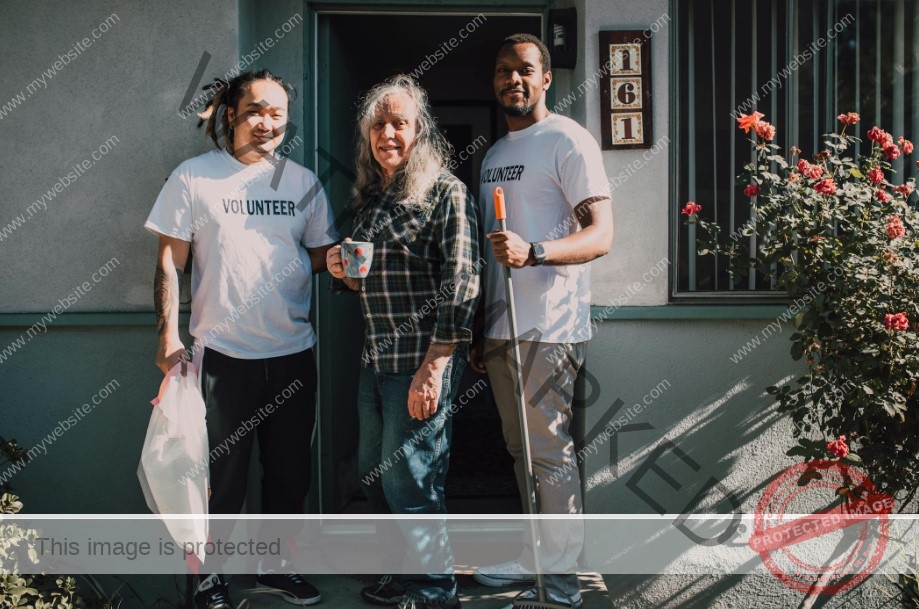Learn how Harvard University partnership with nonprofits help to amplify its impact through charity events and community outreach, forming powerful collaborations for social good. We also talked about Harvard University nonprofit partnerships and Harvard and nonprofits charity work. As well as Harvard community outreach nonprofits and Harvard University charity collaborations.
Harvard University Nonprofit Partnerships
The Power of Collaboration in Social Change
Harvard University’s partnerships with nonprofit organizations are a fundamental part of its mission to tackle pressing global challenges. By partnering with nonprofits, Harvard can extend the reach of its research and innovation. Thus, combining resources to amplify the impact on society. These partnerships allow both Harvard and the nonprofit organizations to focus on their strengths. Thus providing holistic solutions to complex problems that no one organization could tackle alone.
In healthcare, for example, Harvard collaborates with nonprofit organizations such as Partners in Health. This is a global nonprofit dedicated to providing quality healthcare to those who need it most. By leveraging Harvard’s medical expertise, this partnership has helped improve healthcare outcomes in some of the world’s poorest communities. In return, Harvard gains valuable insights from nonprofit fieldwork, creating a feedback loop that enriches academic research and practical implementation.
Strategic Nonprofit Partnerships
Nonprofit organizations often have a deep understanding of the communities they serve, which makes them ideal partners for Harvard’s initiatives. Harvard University’s partnership with nonprofits spans across multiple domains, from climate change to social justice. A prime example of such collaboration is Harvard’s ongoing work with Conservation International. It is where the university provides research and strategic guidance on climate change and biodiversity preservation.
Another noteworthy collaboration is with the Clinton Health Access Initiative (CHAI). It is where Harvard and the nonprofit work hand-in-hand to improve healthcare accessibility in underdeveloped regions. These nonprofit partnerships are grounded in shared goals and values. Thus, ensuring that both Harvard and the nonprofits work toward sustainable and impactful solutions.
Through these partnerships, Harvard has not only contributed to meaningful change but has also inspired other academic institutions to engage with the nonprofit sector in a similarly impactful way.
Expanding Academic Horizons
Harvard’s partnership with nonprofits goes beyond just solving immediate problems—it also enriches the academic landscape. Nonprofit organizations often work on the front lines. Thus, dealing with real-world problems and practical solutions that can provide invaluable data for academic research. Harvard’s faculty and students collaborate with nonprofits to collect data. As well as conduct fieldwork, and develop research methodologies that can be applied to a broader range of issues.
For instance, Harvard’s Poverty Action Lab collaborates with various nonprofits to conduct randomized control trials (RCTs). They do this in order to test the effectiveness of social programs in different communities. This research directly informs both public policy and nonprofit strategies. Thus, further proving that the collaboration between academia and the nonprofit sector is mutually beneficial.
See also: Overview of the Harvard International Office: Services and Support for International Students
Harvard and Nonprofits Charity Work
Harvard’s Global Charity Efforts
When it comes to Harvard and nonprofits’ charity work, the university’s efforts have a significant global footprint. Through its various schools and research centers, Harvard engages in charity work that addresses some of the world’s most critical needs. These needs include education, healthcare, environmental sustainability, and human rights. These initiatives aim to not only provide short-term relief but also work toward long-term solutions.
One of the standout initiatives is Harvard’s involvement with UNICEF. Here, it collaborates on child health and education programs in developing nations. Harvard’s public health experts and UNICEF work together to create impactful programs that address malnutrition, childhood disease, and access to education. This is just one example of how Harvard and nonprofits’ charity work aims to create sustainable, long-lasting change across the globe.
Local Charity Efforts in Boston
While Harvard’s international charity work is remarkable, the university also dedicates significant resources to local charity efforts. Harvard is deeply integrated into the fabric of the Greater Boston area. Here it works closely with local nonprofits to address issues like homelessness, poverty, and educational inequality.
For example, Harvard collaborates with Rosie’s Place, a nonprofit that supports homeless women in Boston. Through this partnership, Harvard students and faculty provide educational workshops, healthcare services, and legal assistance to women in need. Harvard also contributes through its charitable giving, supporting Rosie’s Place financially to expand its services.
These local charity partnerships are vital to strengthening the relationship between Harvard and its surrounding community. It ensures that Harvard’s charity efforts are felt not just globally but also right in its own backyard.
See also: How the Harvard International Office Assists with Visa Applications
Harvard’s Role in Emergency Response
When crises strike, Harvard is often one of the first academic institutions to respond by partnering with nonprofits to provide immediate aid. Whether it’s a natural disaster, a pandemic, or a humanitarian crisis. Harvard and nonprofits’ charity work provides essential services when they are needed the most.
During the COVID-19 pandemic, for instance, Harvard worked with various nonprofits to provide PPE, medical research, and public health guidelines to communities across the globe. Harvard’s collaboration with the COVID Collaborative, a nonprofit coalition, exemplified the university’s ability to mobilize its resources quickly to make a tangible difference in crisis situations.
Harvard Community Outreach Nonprofits
Engaging with the Local Community
Harvard community outreach nonprofits play a crucial role in bridging the gap between the university and the local community. These nonprofit partnerships are designed to empower underserved communities in the Greater Boston area. This is done by providing access to resources, education, healthcare, and legal services. Harvard’s outreach programs serve as a model for how academic institutions can engage meaningfully with their local communities.
One of the most successful examples of Harvard’s local outreach is its collaboration with The Phillips Brooks House Association (PBHA). It is a student-run nonprofit that offers community service programs. PBHA works in close collaboration with Harvard to provide mentoring and tutoring. Additionally, they provide enrichment activities for low-income youth in Boston and Cambridge. This partnership not only helps the local community but also gives Harvard students the opportunity to engage in meaningful public service work.
Through this outreach, Harvard creates a positive cycle of community involvement that benefits both the local residents and the university itself. Students gain hands-on experience in nonprofit work, while local nonprofits benefit from Harvard’s intellectual and financial resources.
Supporting Local Education and Workforce Development
One of Harvard’s key areas of focus in community outreach through nonprofits is education and workforce development. The university collaborates with numerous local nonprofits to ensure that individuals from disadvantaged backgrounds have access to quality education and job training. Through programs like Boston After School & Beyond, Harvard helps to provide after-school learning opportunities for Boston Public School students.
Harvard also works with Year Up. It is a nonprofit that aims to close the opportunity gap by providing young adults with the skills. Additionally, they provide experience, and support they need to succeed in professional careers. By collaborating with nonprofits focused on education and workforce development, Harvard is helping to build a brighter future for Boston’s youth and create pathways out of poverty.
Healthcare Access for Underserved Populations
Healthcare is another critical area where Harvard community outreach nonprofits make a significant impact. Harvard’s medical schools and public health experts collaborate with local nonprofits to provide healthcare services to underserved populations in the Boston area. For example, Harvard partners with the Cambridge Health Alliance to offer free healthcare clinics for low-income families.
These healthcare initiatives often include preventive care, mental health services, and education on health-related issues. Harvard’s commitment to local healthcare ensures that residents in Boston have access to essential services. This is regardless of their income or background.
See also: Orientation Programs for International Students at Harvard: A Guide from the HIO
Harvard University Charity Collaborations
Bringing Together Diverse Academic Disciplines
One of the most impressive aspects of Harvard University charity collaborations is the way the university brings together different academic disciplines to tackle complex issues. Harvard’s multidisciplinary approach means that its charity work is informed by experts across fields. Such as public health, law, business, and education, providing nonprofits with the holistic support they need to succeed.
For example, a recent collaboration between the Harvard Law School and Harvard Medical School resulted in the formation of the Center for Health Law and Policy Innovation. This center works closely with nonprofits to develop policy solutions for improving healthcare access and reducing disparities. By collaborating across different departments, Harvard ensures that its charity work is well-rounded and impactful.
Global Charity Collaborations
Harvard’s global footprint is significant, and many of its charity collaborations extend across borders. The university has formed strategic partnerships with international nonprofits to address critical global challenges such as poverty, education, and climate change.
A notable example is Harvard’s collaboration with the World Food Programme (WFP), where the university provides research and expertise on food security and nutrition in developing countries. By partnering with WFP, Harvard is able to contribute to global efforts aimed at reducing hunger and improving food access in some of the most vulnerable regions of the world.
Another example of Harvard University charity collaborations is its work with the International Rescue Committee (IRC). Harvard’s collaboration with IRC focuses on providing education and healthcare to refugees and displaced populations in conflict zones. This partnership highlights Harvard’s commitment to global humanitarian efforts and its ability to work with nonprofits to address the most pressing challenges of our time.
See also:Apply for Harvard Academy Scholarship Admission for International Student, USA
Student and Faculty Involvement in Charity Collaborations
Students and faculty play a vital role in Harvard’s charity collaborations. Many faculty members lend their expertise to nonprofit organizations, serving as consultants or advisors. Additionally, Harvard’s students actively participate in charity work, whether through volunteer programs, internships, or research projects.
Harvard’s Center for Public Interest Careers (CPIC), for instance, helps students find internships and fellowships with nonprofits that align with their career goals. These experiences not only allow students to contribute to charitable causes but also help them develop the skills they need to lead future nonprofit initiatives.
Conclusion
Harvard University’s partnership with nonprofits is a powerful example of how academic institutions can make a tangible difference in society. Whether through charity work, community outreach, or global collaborations, Harvard consistently leverages its resources, research, and talent to create positive change in the world. These partnerships with nonprofit organizations amplify the impact of both parties, enabling them to address issues ranging from healthcare to education to climate change.
As Harvard continues to expand its partnerships with nonprofits, it serves as a beacon of hope for a future where academic excellence and social responsibility go hand-in-hand. By working together, Harvard and nonprofits are not only changing lives today but are also paving the way for a brighter, more equitable tomorrow.
See also: https://hbr.org/2022/11/how-companies-can-partner-with-nonprofits

